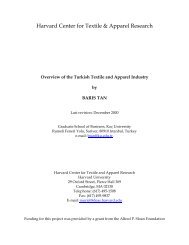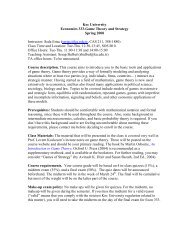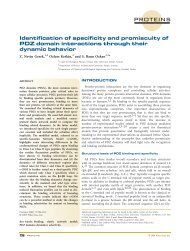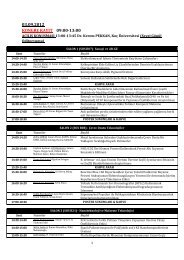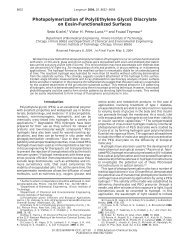Roman Landholding in Asia Minor Author(s): Thomas Robert ...
Roman Landholding in Asia Minor Author(s): Thomas Robert ...
Roman Landholding in Asia Minor Author(s): Thomas Robert ...
Create successful ePaper yourself
Turn your PDF publications into a flip-book with our unique Google optimized e-Paper software.
Vol. Ixv] <strong>Roman</strong> <strong>Landhold<strong>in</strong>g</strong> <strong>in</strong> <strong>Asia</strong> M<strong>in</strong>or 217<br />
beutae, be<strong>in</strong>g both religious and adm<strong>in</strong>istrative <strong>in</strong> character,<br />
were the natural officials for native villages, but they are no<br />
better evidence for large estates than the villages themselves.<br />
The <strong>in</strong>dications, therefore, that Antony amassed huge do-<br />
ma<strong>in</strong>s <strong>in</strong> <strong>Asia</strong> are very slight <strong>in</strong>deed. The stories preserved<br />
<strong>in</strong> Plutarch and Strabo,51 however, that the property of well-<br />
born people was given to scoundrels, or the house of a citizen<br />
of Magnesia to a cook, whatever their propagandist purpose,<br />
are based on the disturbances of the time. Many <strong>Roman</strong>s<br />
owned property <strong>in</strong> <strong>Asia</strong>, many would presumably be affected<br />
by the proscriptions and the resultant confiscations, and many<br />
of these properties were probably situated <strong>in</strong> the Hermus and<br />
Cogamus valleys, the richest <strong>in</strong> <strong>Asia</strong>. Such a situation is<br />
sufficient to account for the few possible but untitled Antonian<br />
freedmen or new citizens whom we know.<br />
The disturbances caused by the second triumvirate did<br />
not impede the development of <strong>Roman</strong> landhold<strong>in</strong>g <strong>in</strong> <strong>Asia</strong><br />
under Augustus and the Julio-Claudians. Friedlander's evi-<br />
dence 52 shows that the practice of own<strong>in</strong>g estates <strong>in</strong> the prov-<br />
<strong>in</strong>ces of the empire cont<strong>in</strong>ued to be characteristic of the <strong>Roman</strong><br />
nobility. The ancestral <strong>Asia</strong>tic estates of Rubellius Plautus<br />
form a typical example.53 <strong>Roman</strong> nobles must also have<br />
acquired lands <strong>in</strong> the new prov<strong>in</strong>ce of Galatia; we know of<br />
the estates of the Sergii Paulli,54 and Ramsay has <strong>in</strong>ferred,<br />
from the uncerta<strong>in</strong> evidence of the onomastic, the existence of<br />
hold<strong>in</strong>gs of Seneca too.55 What lands may have been acquired<br />
by others, who, like Lollius, used official command <strong>in</strong> the East<br />
51 Plut. Ant. 24; Strabo xiv, 1, 41.<br />
52 Sittengeschichte Roms9 I, 121 f.<br />
63 Tac. Ann. xiv, 22. See below on Livia and Agrippa. Ramsay supposes<br />
that there was property of the first wife of Claudius, Plautia Urgulanilla, <strong>in</strong> the<br />
Maeander valley near Dionysopolis (J.H.S. L [1930], 283), but the Qu<strong>in</strong>tus<br />
Plautius Ven[ustus?] of the <strong>in</strong>scription quoted does not call himself a freedman<br />
or hold an office.<br />
"4Ramsay, J.R.S. xvI (1926), 202-207; Calder, Klio xxiv (1931), 59 f.<br />
Note also the estate of Appuleia Concordia near by, Calder, Class. Rev. xxII<br />
(1908), 215.<br />
I5 J.R.S. xvi (1926), 205.



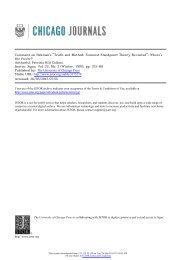
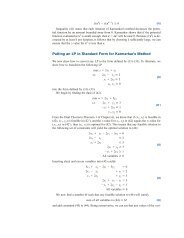
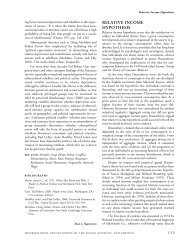
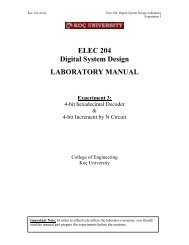
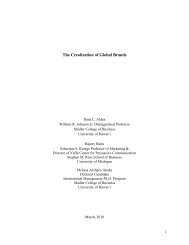

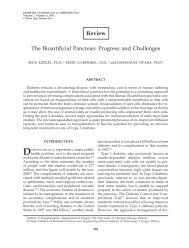
![]_[O](https://img.yumpu.com/10363126/1/190x138/-o.jpg?quality=85)
